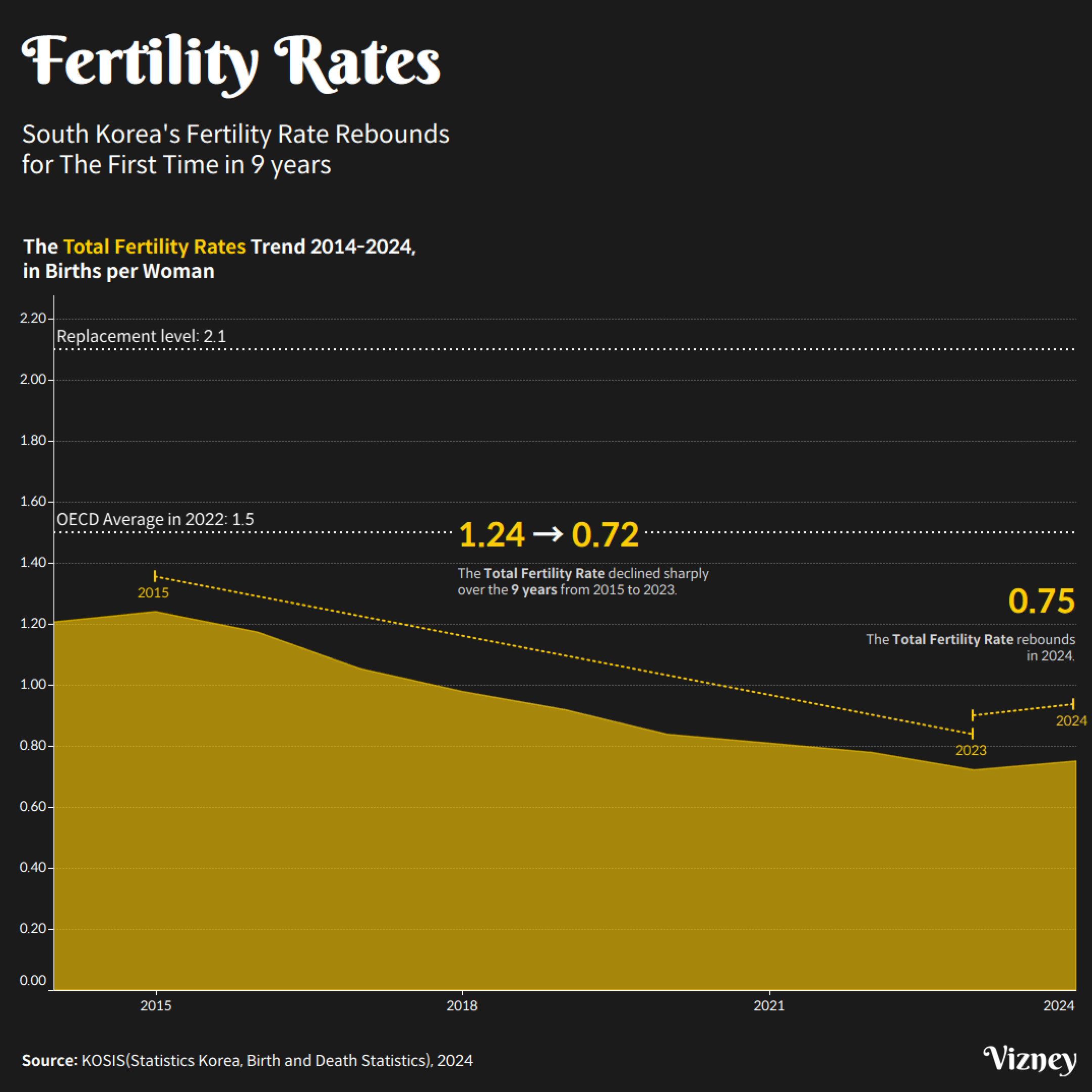South Korea's Fertility Rate Rebounds for The First Time in 9 years
For the first time in nine years, South Korea’s birth rate has increased—a small but hopeful sign amid record-low fertility. While still far below the replacement level, this rebound offers insight into potential shifts and ongoing challenges.


Increase in Births and Total Fertility Rate
According to the 2024 Birth and Death Statistics (Preliminary) released by Statistics Korea, both the number of births and the total fertility rate increased last year:
- Births in 2024: 238,300 (+8,300 from the previous year, +3.6%)
- Total fertility rate in 2024: 0.75 (+0.03 from the previous year)
This marks the first increase since 2015, offering a break from the continuous decline that has defined the past decade.
What’s Behind the Rebound?
Several factors likely contributed to this slight recovery:
- More marriages: As pandemic-delayed weddings resumed, the number of marriages in 2024 jumped 14.9% from the previous year, reaching 222,422.
- Demographic shift: The so-called “Second Echo Boom Generation,” born in the early 1990s, has now reached prime childbearing age, helping to drive the increase.
- Changing social attitudes: A growing awareness of the low birth rate crisis has led to a shift in public perception, with more conversations about the importance of family and child-rearing.
Still Far from the Replacement Level
Despite this positive shift, South Korea’s fertility rate remains one of the lowest in the world. At 0.75, it falls far short of the 2.1 needed to maintain the current population. Experts caution that unless this trend continues and strengthens, the country will still face significant population decline in the coming decades.
Looking Ahead
Although the increase is modest, it provides a glimmer of hope. For this momentum to continue, consistent policy support, social changes, and long-term strategies will be essential. The challenge is not just about numbers—it’s about creating an environment where people feel confident about starting and raising families.

